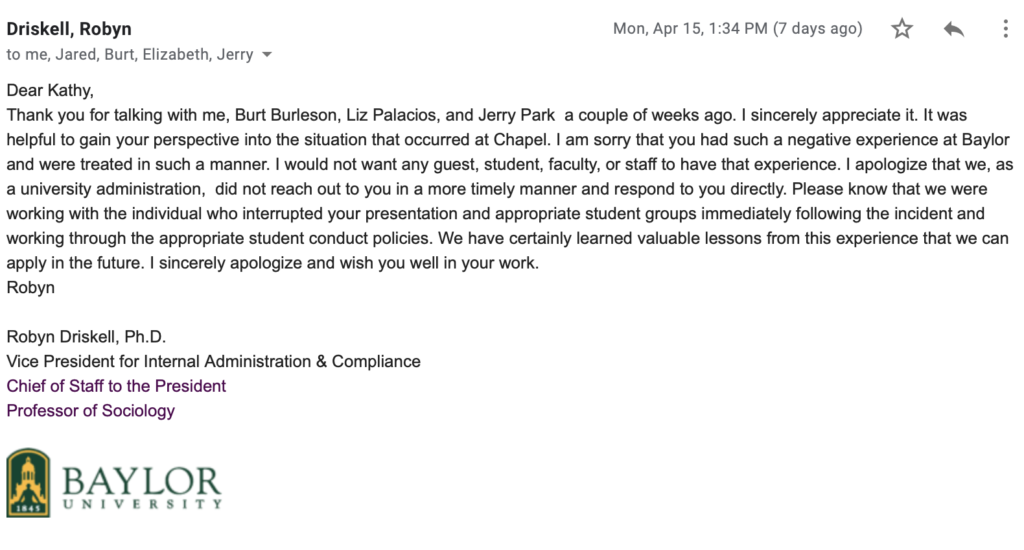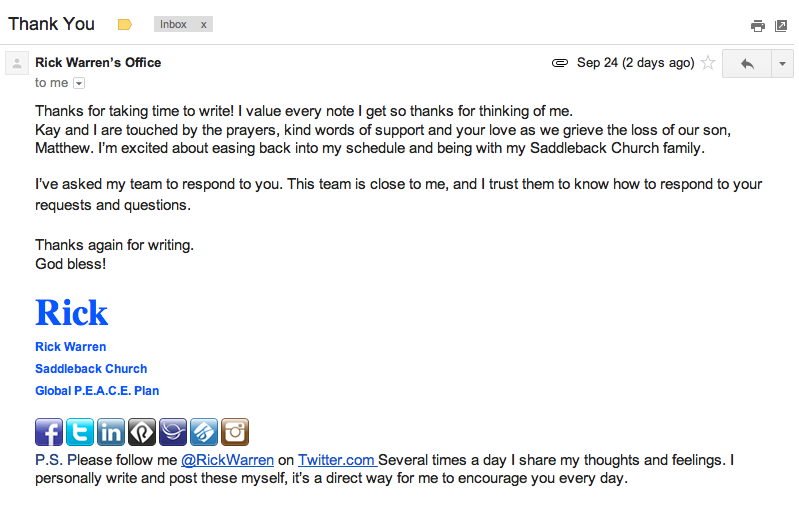
My Dear Readers,
Many of you have reached out over the past two months with words of encouragement, prayers, funny memes, and lovely tangible gifts of wine, chocolate, sheet masks, and pottery. Thank you, thank you, thank you.
There wasn’t much to update you with until last week, and I’ve been trying to decide and discern what to write about the apology I received. I know I should be grateful and gracious but to be brutally honest I am tired. It took two months for the institutional wheels of a Christian university to issue an apology that is worded in the first person, carefully avoiding institutional culpability but acknowledging some proximity to the situation.
In other words, the apology is a first step and because this involved an institution it took more than a heart-to-heart “do you hear what I’m saying” conversation. Allies and advocates inside the institution worked hard to get the administration’s attention, and I am deeply grateful for the students, staff, and faculty who contacted various administrators to let them know that they/we were waiting and watching to see how a Christian institution would respond.
A timeline
February 18 – I preach/speak/talk at Baylor chapel, by invitation. Chapel is a required class and runs back for three class periods. That morning, after the first chapel, I posted a vague book request for prayer on my author FB page because a student interrupted me as I was wrapping up my time, unnerving me for a split second as I tried to figure out what to do. The student objected my example of an 11-year-old arrested for refusing to stand for the pledge of allegiance. You can do your own Google search and see how headlines covered this story, etc. A university administrator asked me to consider rephrasing my description of the news story despite the fact that multiple news outlets connect the arrest to the child’s refusal to stand for the pledge. I removed the example all together because it’s clear the administrator wasn’t comfortable with the example, and I don’t want to worry about students interrupting me. My focus is on calming down for the next two chapel services. Chapel staff told me crisis protocols were in place and that someone had considered removing me from the stage, the student had been removed quickly from the auditorium, and that I was not the only adult in the room who was concerned that the situation could’ve escalated.
February 25 – I write and publish my blog post with little to no public reaction from Baylor students, parents of students, alumni, etc. No one from the university follows up with me, despite having acknowledged that other university employees also had made split second decisions and were ready to remove me from stage, etc.
When I wrote this post about what had happened to me in February I did not name the university or the student involved. The blog post wasn’t about a single incident but how that one incident, which I do describe, got me thinking about safety, risks, etc.
March 4 – A university-recognized student organization publicly posts a YouTube video where the young man who interrupted my chapel talk names me and challenges me and the university to respond. Now it’s not just about me thinking about safety (and the university’s failure to follow-up with me about what happened during chapel). It’s about the university in a far more public way because a Baylor student organization decided to make it about me against them and Baylor and invited supporters to raise their voice. Very clever. (Next time, dear young conservatives, please learn how to pronounce my name and cite my book correctly.)
Comments on my original blog post and on my Twitter feed get, um, interesting and are an example of the pros and cons of communication in the 21st century – anonymity, gaslighting, gentleness, openness, name-calling, humility, etc. (Note: I have since closed the comments on that post. My blog, my rules.)
March 7 – The Baylor Lariat publishes a letter to the editor from the Coalition of Asian Students asking the university to respond to the February 18 incident and publishes an article about the video and interviews the student who interrupted me.
March 8 – A university administrator emails me for the first time. Staff, faculty, and students reach out to my privately. Comments on my blog continue, along with tweets and subtweets. My favorites include Christian students and parents of students calling me a racist, coward, and false prophet. For the record, I have never claimed to be a prophet, I am afraid when people get very close to threatening me, and reverse racism isn’t a thing no matter how many times people try to make it a thing.
While some commenters refer to chapel speakers being more liberal than what they would prefer at a Christian university, no one I have talked to at the university can name another speaker who has been dragged on social media or interrupted. Commenters would call it keeping me accountable.
April 2 – I have a one-hour call with Driskell, two other university administrators, and a faculty of color.
April 15 – Robyn Driskell emails me with an apology.
A reflection
Just because an organization or institution is lead by Christians or calls itself Christian doesn’t mean the systems and structures reflect and act with those values. Many of us have seen this in our churches, and close friends of mine have brought to light similar institutional and leadership failures in Christian publishing and conferencing.
Sometimes the failures are blatantly racist and other times they are “racially charged” which is a longer way of saying racist. Sometimes the apology and “fix” don’t ever come, not in a way that actually brings about learning and restoration. Sometimes an apology comes a decade later, but it can’t undo the damage nor are tangible steps taken to ensure those same mistakes won’t happen again.
In the past I have offered suggestions, ideas, and feedback only to find that nothing will change. Having the conversation and listening is mistaken for repentance and change.
Not this time
This time I refused to offer those suggestions and resources as a free will offering.
If an institution like Baylor wants its administrators, faculty and staff to grow in cross-cultural communication and is committed to learning how to better host diverse speakers and prepare the Baylor community to not only tolerate but welcome and learn from and with those speakers, Baylor can do more than issue an apology. It can invest in diversity and inclusion training at all levels (think Revelation 7:9-10 and no, not everyone is crying out in English), communicate institutional failures and lessons learned to its internal and external constituency, and because it is an institution of higher education it can decide on learning outcomes and design programs around those goals.
This is my blog, but the ending to this story isn’t mine to write. I accept the apology but if Baylor has truly learned valuable lessons from this experience, as Driskell writes in her apology, we will have to wait to see what changes come as a result. The Coalition of Asian students has a few ideas I bet, and to those students I say #sicem.


